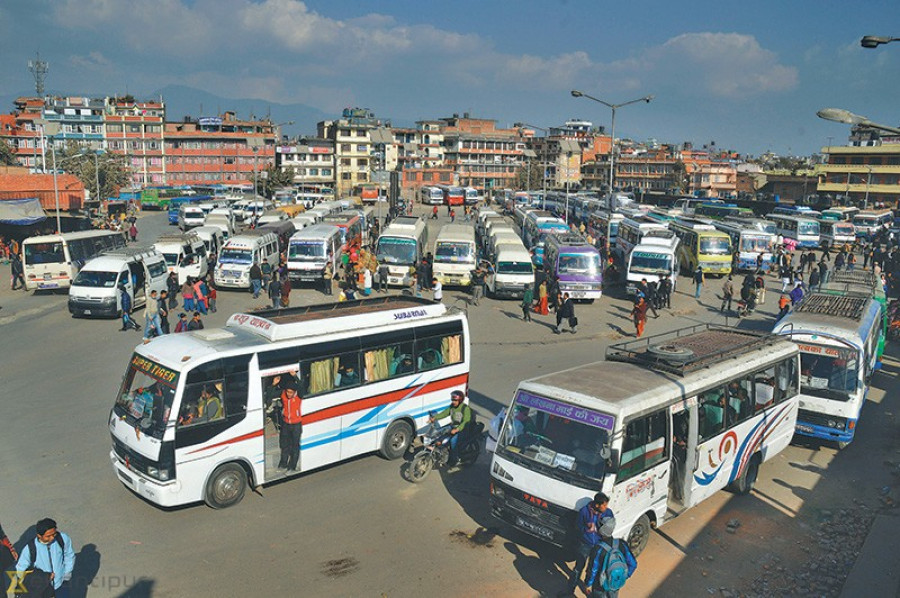National
Consumer rights activists, commuters criticise public transport fare hike
The decision puts extra burden on members of the public, who are already stressed financially due to the Covid-19 pandemic and the lockdown, observers say.
Anup Ojha
Consumer rights activists and commuters have criticised the government's decision to hike public transport fares to allow buses to ferry fewer passengers and comply with social distancing norms in the face of the Covid-19 pandemic.
They say that the hike adds financial burden to members of the public who already are reeling under economic stress due to the months-long lockdown and travel restriction.
“This is a haphazard decision on the part of the government. It directly impacts common people who rely on public transport during these difficult times,” said Jyoti Baniya, chairperson at the Forum for the Consumer's Right Nepal.
The government on Thursday decided to allow public vehicles to resume services by ferrying passengers only up to 50 percent of their seat capacity and allowing them to charge double the normal fares.
“This looks more like a decision an autocratic government would take,” said Baniya. “Transport operators are taking the opportunity to re-establish their syndicate system by bargaining with the government.”
Although the government lifted the ban on short-haul transport, the Federation of Nepalese National Entrepreneurs has rejected the government’s decision and not resumed their services.
Citizens who need to commute every day for their work are worried about paying extra for transport. Only a handful of buses are back on the road and they were charging exorbitantly, members of the public the Post spoke to said.
“I paid Rs 40 to get to Kalanki to Ekatakuna, this is too expensive. Normally, they’d charge Rs 16 to 20 for the ride,” said Surya Tamang, 43, a construction worker. “I didn’t know the government had hiked the bus fares,” said Tamang who was elated to board the bus after weeks of walking to work.
“Under the revised fares, I need to shell out Rs 80 for my transportation only. How will I feed my family? I still have to pay three month’s rent,” questioned Tamang.
The government's decision to hike the fares has worried many farmers, who ferry vegetables from Bhaktapur and suburbs of Kathmandu to the market, on public vehicles.
“Now we can’t imagine taking our vegetables to the market in Kathmandu,” said Gita Thapa, 37, a resident of Gundu in Suryabinayak Municipality-7, Bhaktapur. She said before the lockdown that started on March 24, she used to come up to New Baneshwor to sell vegetables.
“Now, there is fear of transmission of coronavirus and we are told we need to pay 50 percent more bus fare, this decision is against farmers like us,” said Thapa.
Bishnu Prasad Timilsina, deputy general secretary at Consumer Right Nepal said the transportation fare hike has added more financial burden on people who are struggling to make their ends meet.
“It’s mainly the working-class people who use public transport. I do not understand why the government is adding this economic burden on the people,” said Timilsina.
Gogan Bahadur Hamal, director-general at the Department of Transport Management said the hike was part of a temporary arrangement. “This was done in view of Covid-19 as transportation operators are only allowed to ferry passengers up to 50 percent of their seat capacity,” said Hamal without mentioning when the fares will come down to normal again.




 18.12°C Kathmandu
18.12°C Kathmandu.jpg)














